|
We are raising funds for our Women's Incubation Center! We need all the support we can get to turn this vision into a reality. See below for more information.
0 Comments
In October 2023, come join us to celebrate 15 years of Nyamirambo Women's Center! See flyers below for event descriptions and contact information.
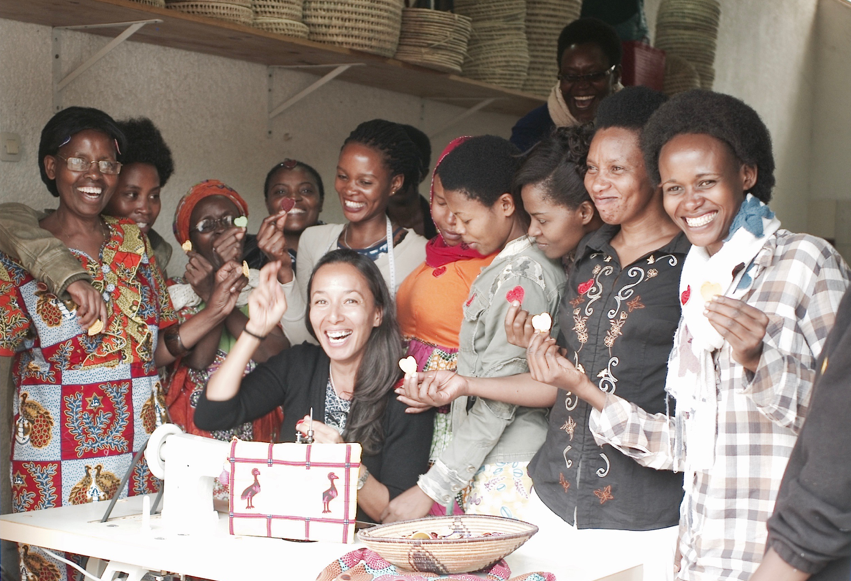 Monica Tabet-Gugolz, alongside Marie Aimee Umugeni, pioneered NWC & Umutima, to create a unique, self-sustaining model: an NGO & cooperative that nurture one another. After four years, Monica is preparing to leave Kigali to return to Switzerland. With our deepest gratitude for the integral role Monica has played here over the past four years, we’d like to share hers and Umutima’s story as we tell her farewell. Interview by Hilary Old What brought you to Rwanda & what is your background? My love story with Rwanda began in 2003 when I moved to Kibuye with my husband to work with a Swiss-funded development project. In this experience, I realized that being close to the roots of the work is where I fit – where I can have the most impact and contribute my best. After three years, we returned to Switzerland, then on to Vietnam and Bangladesh, before coming back to Rwanda with our three children in 2013. My husband works for a bilateral development agency, while I’ve worked as a consultant with UN agencies and INGOs, specializing in project management and institutional development around women’s rights and gender equality. Moving back to Rwanda represented an opportunity for me to give back – knowing the culture and the way people worked – in a lasting way and to build capacity, so that the model we build can live on beyond any role I’ve played, and truly belong to the women here. How did you start & grow your vision with NWC? NWC was close to home – in every sense. I had researched various grass roots organizations in Kigali, and made a list to visit. NWC was the first place I went because it was nearest to my home. But in a bigger way, it also turned out to be closest to the vision I had about creating a modern, local NGO making decisions in the interest of the mandate, rather than the individuals. From the start Marie Aimee (President & Managing Director) understood and shared this idea. Having such a strong and positive partnership was essential in making it happen, because we went through a lot of change – in mindset, structure, and roles. When I arrived in 2013, NWC was six years old, and funded entirely by the Peace Institute from Slovenia, who were aligned with NWC’s mission to educate and empower women in the neighborhood through literacy, sewing, English, computer, and gender classes. But the challenge was that without the Slovenian investment, the center couldn’t continue. When the funds weren’t available, NWC closed the doors for months at a time. We needed to become sustainable, to build a circular model that could nurture itself, with or without outside funding. I had seen this well-intentioned process in other countries too, where donors come in with funds to support small groups, but the groups don’t have the capacity to manage or absorb funds properly, to ensure long term viability. And that dependency engenders challenges and pressures on the donor(s) and the NGO. How did Umutima come into being, as a sister to NWC? It was clear we needed to develop a way to make our own money, so we could more consistently fund NWC’s mission to educate and empower – and hopefully employ – the women of Nyamirambo. The cooperative started because NWC had sewing classes but nothing beyond that. We had an opportunity to engage the women who had learned this skill to make products. There is such beautiful kitenge fabric here, and if we could choose the right quality and prints, and design in a unique and modern way, we could appeal to the community, particularly tourists and ex-pats looking for souvenirs. It seemed that was where the demand would come from. So we began with a baby blanket, and small pouches with the leftover pieces. I bought our first fabrics with my own money, and Maya, our partner from the Slovenian Peace Institute, redirected their remaining funds to sewing machines. Our first sale was the Kigali Christmas Bazaar at the African International Club (AIC). We rushed to get a collection done in time – I brought everything home to iron, and hand-made the price tags and gift bags. It was pretty crazy – lots of late nights and weekends working – but it was a big success and we learned a lot. How did the NWC & Umutima’s unique model come to be? The first full year I was present, 2014, we focused on developing the sewing and a way of working together. It was hard work to unpack issues and challenges that NWC had over time, and restructure the center to be collaborative in new ways. There were a lot of ups and downs on the path to becoming a real team. Trust was the essential ingredient to moving forward – we had to share values and integrity. Marie Aimee was chosen as President because all the women trusted her. We registered Umutima as a cooperative, and the money earned employed women and was fed back into community offerings. We established a circular model that supported the work to go on, with or without outside funds. Today we are happy to accept donations, but we don’t want to depend on them. We did some fundraising along the way (A Tree for Rwanda, a Swiss association, has provided us with funding these last 2 years, which has allowed us to grow quickly), but were very strict about applying that money in ways that didn’t create dependency. For example, we were gifted 1 year in rent, so we had to make sure the business was growing enough to then cover rent. And every year the business has doubled. Umutima has grown in organic ways. We began with kids clothing when I met San, our pattern and sample making partner, at our children’s school and discovered her talent and willingness to jump in with us. The bags and other products also went into production, and over time we’ve discovered that there is no one or two best-sellers. People enjoy the array of items we make. As Umutima expanded and we established ourselves in our current space, more tourists started coming and our community tours became known as a great thing to do in Kigali. The two together – our shop and the tours – offer an interesting and fun experience, and provide NWC the funds to support the neighborhood kids library and all classes provided to the community. 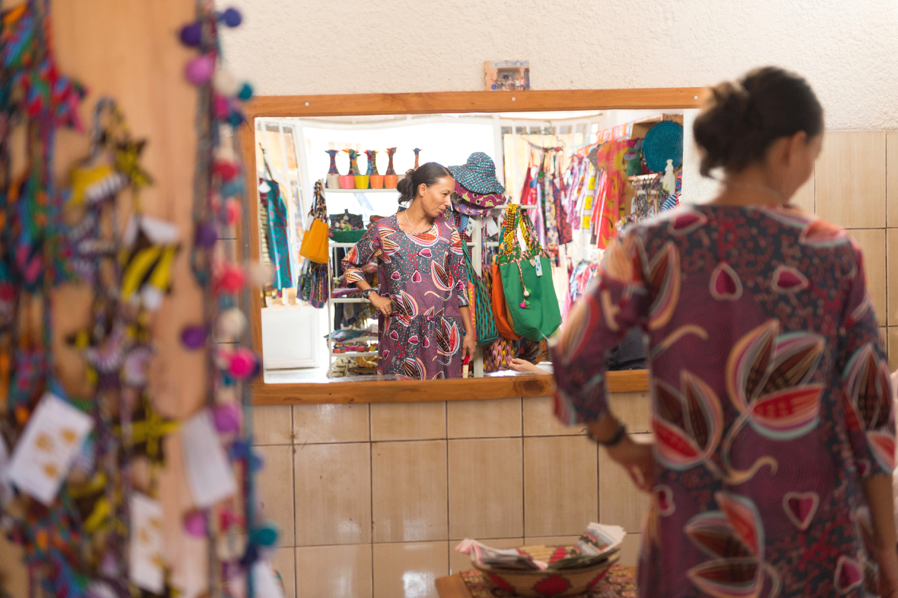 What role have you played in the development of Umutima’s designs? I’ve always been drawn to local crafts because they give you a glimpse into the traditions of a place. When I arrived back in Rwanda after 6 years in Asia, I was inspired to create a fusion of tradition design with a modern twist. There was such amazing kitenge in fabrics shops, yet it was not made up in the crafts you’d see. I started imagining what would I like for my own home, and what gifts would I want to give. It took some convincing for people to try this direction because the styles weren’t what the sewers themselves would have thought of – we had to learn how to serve a customer and a market that wanted a new take on the materials. We created a set of principles:
Marie Aimee! She is my sister. We are very different – she is quiet, but she holds such strong presence and grace. She was trusted by everyone from the very beginning, and to see her growth over these 4 years, and her journey to become the most senior leader here, has been remarkable in every way. I am proud that we committed fully to build this model together. For myself, it was something I needed to see through, even though it was really hard at times. My husband and I chose development, and with that career often come good contracts, nice housing and schools – a privileged situation. I wanted to do something amazing without needing the money or fancy backing as a way of paying back.
We went beyond what I ever imagined. We employ 50 women, we have a CEO, and accountant, computers, our taxes figured out, benefits for everyone who works with us, a shop full of people. We have great opportunity to grow within Rwanda, and maybe someday beyond. I think I did more in these 4 years than ever. Perfect way to close 15 years in international development. I go away happy. And I will stay connected, as a friend and an advisor. We want to share the interview done by Indego Africa a year ago as it tells the story of who we are and how far we have come. Indego Africa is a non-profit based in New York that works with many cooperatives here in Rwanda, empowering women through their leadership program and their support to Rwandan handmade crafts. We are proud to be their partners and to create the beautiful items for the babies of Indego Africa!
Click on the link to read more from the Indego Africa Blog “Up close and Indego”: https://indegoafrica.org/blog/the-lovely-mama-makers-of-umutima-cooperative The Mama Makers of Umutima Cooperative April 29, 2015 The lovely ladies of Umutima {which means “heart” in Kinyarwanda} have played a big role in our brand new collection for little ones by beautifully hand-sewing many of the pattern-happy items on our nursery line – everything from rompers to playmats to turbans & more! These talented women – most of whom are also mamas – inspire us everyday with their beautiful artistry, determination, and dreams for the future. We chatted with Umutima’s advisor, Monica Tabet-Gugolz, and a few of the ladies themselves to find out more about this wonderful cooperative and to hear what they had to say about our nursery collection. Read on to find out! -- Originally from Switzerland, Monica moved to Rwanda in 2013 looking to become involved with a grassroots women’s organization. She began volunteering with the Nyamirambo Women’s Center – an institution which helps women continue their education and gain better employment opportunities – but soon realized that the Center was too dependent on outside funding and lacked a means to sustain itself. To address this issue, Monica began teaching some of the women how to apply hand-stitches to African wax print fabric. Slowly but surely this dedicated bunch learned how to sew everything from home décor to children’s clothing, with an emphasis on quality and detail. Today there are nearly 30 women involved in the project and they have organized themselves into a well-run cooperative known for its beautiful craftsmanship. Here’s what Monica had to say about working with Umutima on our nursery collection: We have loved working with Umutima to create beautiful products for our nursery line – what are your thoughts on the collection? The collection is so beautiful and we feel that Indego Africa reflects Umutima’s spirit perfectly. To see our products in the nursery collection validates all the hard work we have put into creating Umutima and gives us hope for our future. I still cannot believe this is happening! As a mother yourself, what product from our nursery collection would you most like to give to your little one(s)? For me the baby blanket/playmat is the item I love the most. It is Umutima’s very first product and I remember how much effort it took to get the final product right and to teach the women to stitch them. What is the process like working with artisans to create a product by hand from start to finish? At the moment I am in charge of design and new ideas. I then introduce the new idea to the women and we work on making the sample. Sometimes this involves looking for external artisans (for example for basketry) and this can take time. Once we are happy with the sample, the women working with me on it will teach the other ladies. It takes a lot of patience and understanding, because the products that we make are “luxury” items in Rwanda. They are not products that are necessary to daily life here, so it is sometimes difficult for the artisans to understand why we cannot accept products that are not finished correctly. I put a lot of time and effort into quality control and making sure the details are finished correctly, but they now know that if our clients come back it is because of our attention to detail and so they accept the fact that I can be demanding. There is one story that I will always remember. One of our tailors, Francine, when she started working for us found it really difficult to sew straight. The very first products we gave her were our aprons, which have a pocket in the front. No matter how much she tried, the pockets were never straight and each apron had to be done twice or even thrice. But Francine persevered and when she was finally able to make an apron that was perfect the first time, we both ended up with tears of happiness. Today Francine is one of the tailors that made the baby rompers for Indego Africa! What inspires you about the women you work with? The thing that inspires me the most about the women I work with is the fact that no matter what they have gone through in their lives they still have the strength and the passion to learn new things and work hard to earn a living. I respect the pride they put into their work and the fact that from the start they took ownership over Umutima. We also interviewed three of Umutima’s talented mama makers to hear their thoughts on the nursery collection and what it means to be a working mom. FRANCINE – 8 CHILDREN Which product from the nursery collection do you like the most? My favorite product is Umutima’s romper, because when I was asked to be one of the tailors to make the rompers for Indego Africa it meant a lot to me. When I first joined Umutima I struggled a lot with the finishing details of the products I was asked to sew. I always had to redo them because there was always something not straight or uneven. But I really worked hard to improve myself and slowly I saw the improvement. To be making the rompers means that I am now considered one of the top tailors of Umutima and this makes me proud. What do you enjoy about coming into work everyday? Joining Umutima has changed my life forever. I learn so much and I do it with other women, so I do not feel alone. I can now contribute to the finances of my family and this is a huge step for me. What are your dreams for your children’s futures? I want my children to be able to have an education and to be able to one day earn a living. What does it mean to be a “working mom”? It is important because I can contribute to my family’s needs. I can help pay school fees and medical bills. HOUSSINA – 3 CHILDREN Which product from your nursery collection do you like the most? My favorite product is Umutima’s romper, because I worked with Monica to develop the first sample for this product and in our catalogue we call it the “Houssina jumpsuit”. To see the picture in Indego Africa’s catalogue made me happy. What do you enjoy about coming into work everyday? I am passionate about being a tailor and each day I learn something new with Umutima. I like being part of a team and not working by myself. I know that I can count on my Umutima friends if I need help. What are your dreams for your children’s futures? I want to be able to provide my children with a good education so that they can have a better future. What does it mean to be a “working mom”? I feel proud being an Umutima member. I used to work part time, but now it is a big difference bringing home my monthly salary. With money gained at Umutima I can do a lot of things. I look after my children, I pay school fees, I can pay for rent. I feel independent and proud contributing without asking for help. MAYIMUNA – 7 CHILDREN Which product from your nursery collection do you like the most? My favorite product is Umutima’s playmat/baby blanket. I was one of the first Umutima’s ladies and the baby blanket was our very first product. I remember how hard it was to make the stitched straight and regular. I am now considered one of the best hand-stitchers in our group and I can even make bedspreads. I never imagined that something I make with my hands would reach the other side of the world. What do you enjoy about coming into work everyday? I have found great joy being a member of the Umutima. It is a place where I am happy and have found a social community which gives me great support. I earn an income and find peace in knowing that my children will not go hungry. What are your dreams for your children’s futures? My children are already grown, but I hope that they can always have enough to live and to always be healthy. What does it mean to be a “working mom”? I have a job that I like and I don’t have to wait for my husband to do everything for me. Working gives me independence and pride. --- What an amazing group of ladies! We are proud to be their partners and are thankful to Monica and the rest of the artisans of Umutima for welcoming us into their world! Shop the nursery products – hand-stitched and made with love – by the mama makers of Umutima! |
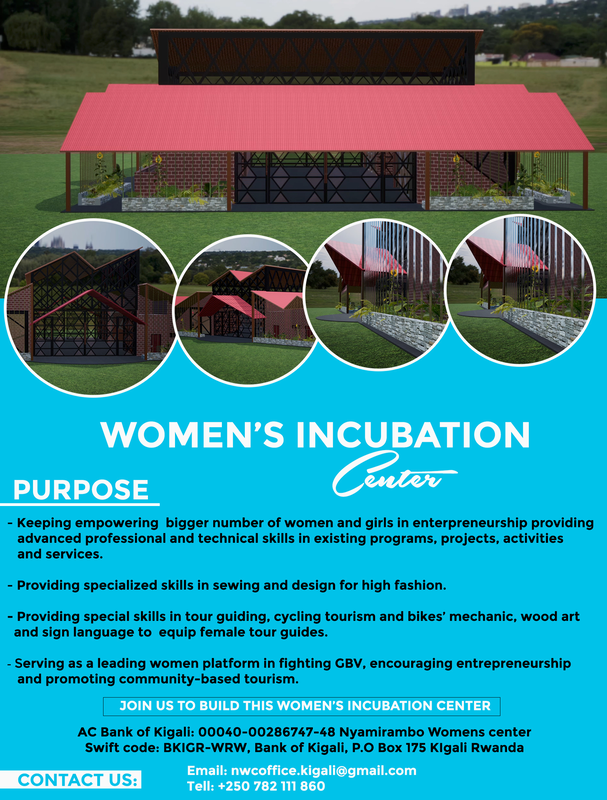
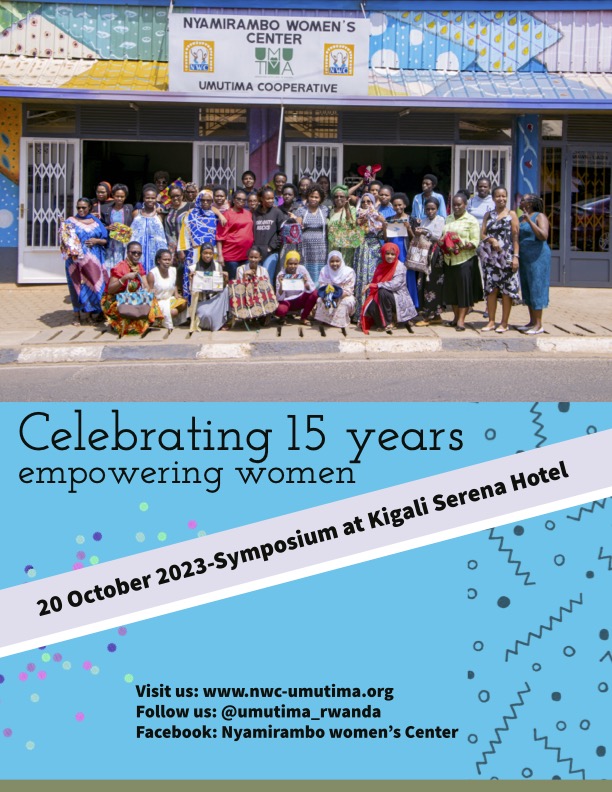
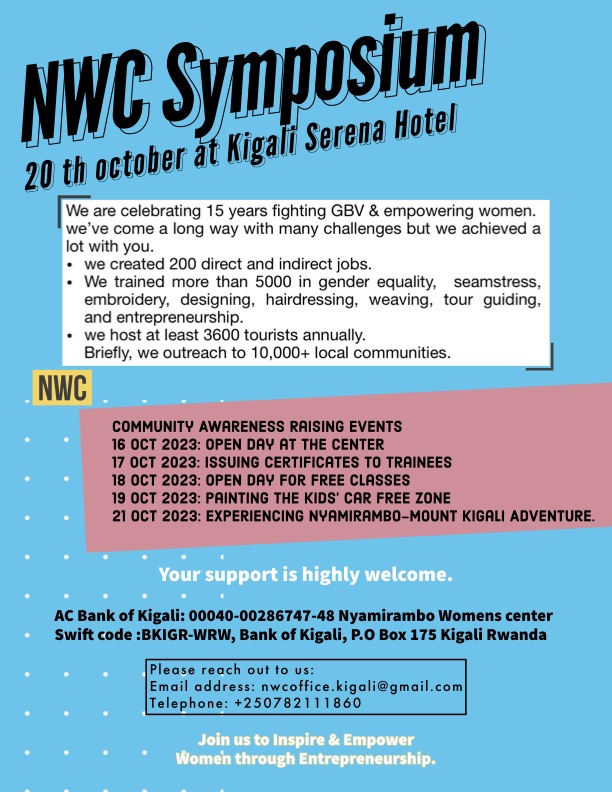
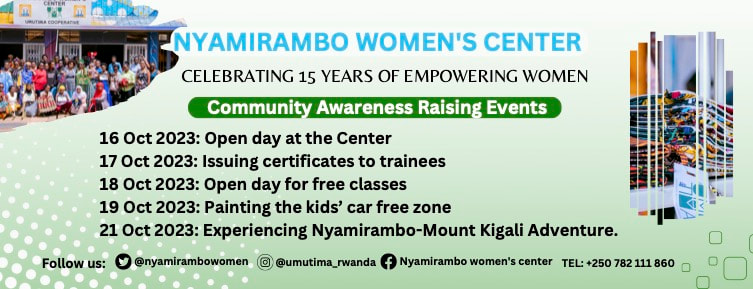
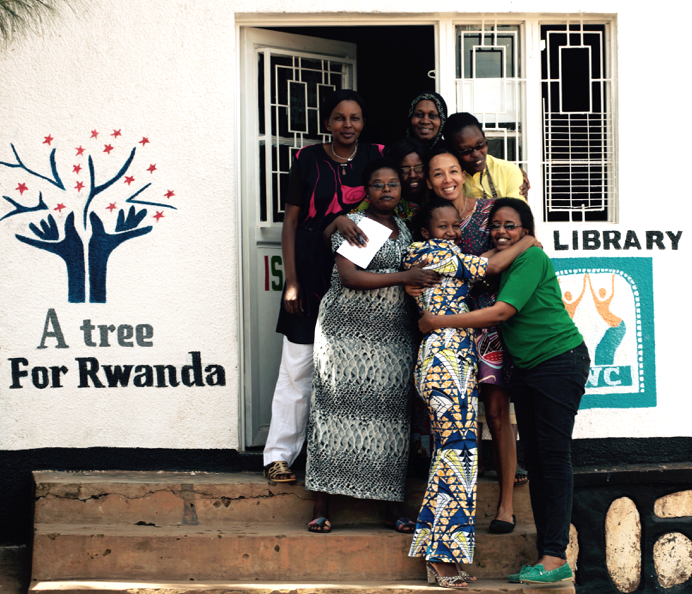
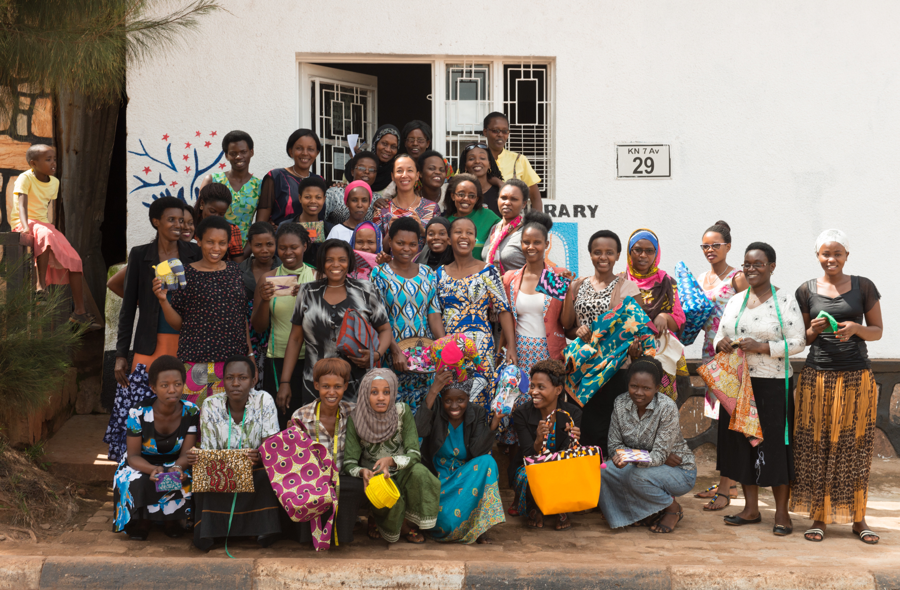
 RSS Feed
RSS Feed